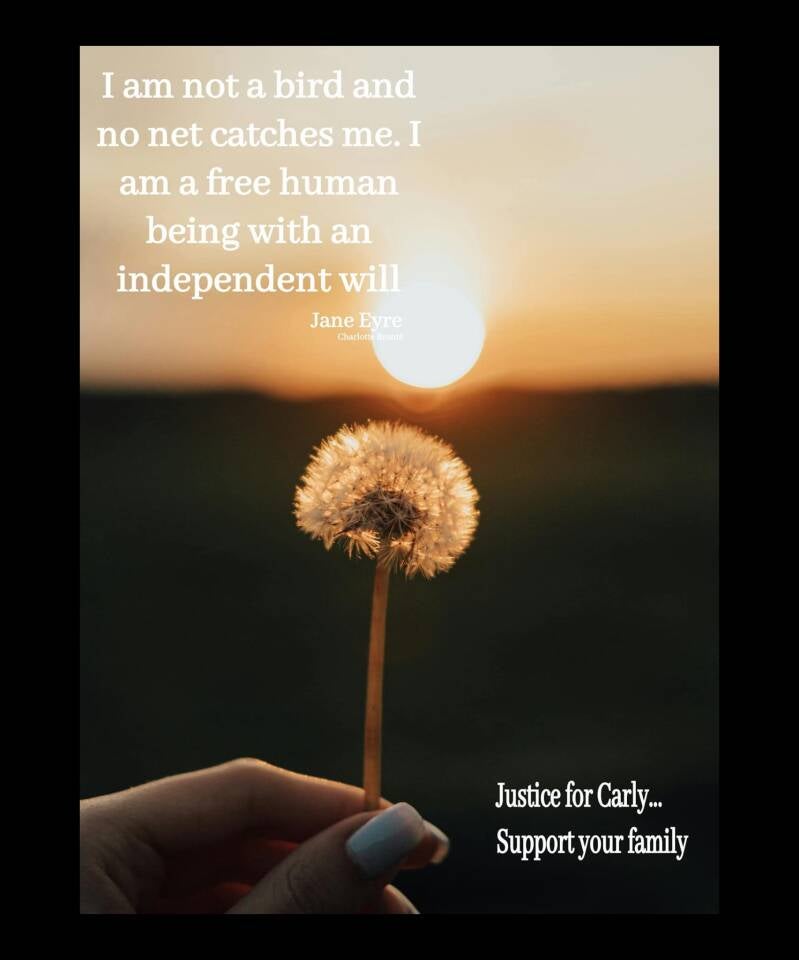As the months of the year fall by and we approach the 1 year anniversary of Carly's trial, we are now at a critical turning point in the fight for justice for Carly. After a rushed trial, a devastating life sentence, and months of delays, Carly’s appeal is finally before the Mississippi Supreme Court. While the process has been slow and complex, one thing is clear: this case is far from over.
In March 2025, Carly retained new legal counsel — James Murphy, a respected defense attorney from Carthage, Mississippi. His words still echo in my heart:
“She’s been chewed up and spit out by the criminal justice system.”
Mr Murphy isn’t just representing Carly. He’s fighting for her voice to be heard, and for the truth to finally be acknowledged — that Carly was a 14-year-old in a mental health crisis, fueled by a dangerous reaction to Lexapro, when a tragedy occurred. She needed medical help, not a life sentence.
Carly’s legal team is working to supplement the official court record to include crucial documents that show how flawed and unfair her trial really was. Among those are pre-indictment motions and a petition for interlocutory appeal filed last year — documents that raise important constitutional and mental health issues the trial court overlooked.
Unfortunately, the Supreme Court denied the motion to supplement in May because the full trial record had not yet been delivered. Once the complete record is filed, Carly’s attorneys plan to resubmit the motion and move forward with the appeal.
It’s a slow process — and for a child behind bars, every day matters. But we are not giving up.
Carly’s case is not just about one girl — it’s about how we treat vulnerable children in crisis. Science, common sense, and faith all tell us that a child’s brain is not fully developed. Carly deserved a chance at healing. Instead, she was handed the harshest punishment imaginable, without a full psychological evaluation or consideration of her age and trauma.
This appeal is our chance — maybe our only one — to right a deep wrong. To show that Mississippi can do better. That we believe in redemption, rehabilitation, and mercy — not just punishment.


